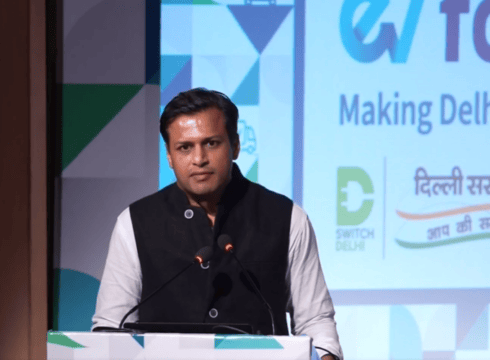Consultations for ToD tariff system are currently in their initial stage and it is likely to be introduced in a year’s time: DDC’s Jasmine Shah
ToD tariff system can lower electricity costs depending on the time of the day, and it is currently available to some commercial and industrial users
The ToD tariff system for EVs would be implemented through separate EV metres for consumers
Inc42 Daily Brief
Stay Ahead With Daily News & Analysis on India’s Tech & Startup Economy
The Delhi government is reportedly planning to introduce a time-of-day (ToD) tariff system for charging electric vehicles (EVs) in order to further incentivise the users.
Consultations for the same are currently in the initial stage and the system is likely to be introduced in a year’s time, Jasmine Shah, vice-chairperson of the Dialogue and Development Commission (DDC) of Delhi, told Mint.
He also noted that while ToD is currently unavailable for charging EVs, it is the need of the hour considering the growing number of such vehicles.
“As the number of EVs increase, grid stability is also important. If someone wants to charge at 10 pm when Delhi’s power load increases, do it at higher prices, but if you can charge your car at 2 am, then it would cost less,” Shah said.
The ToD tariff system can lower electricity costs depending on the time of the day, and it is currently available to some commercial and industrial users with a possibility of retail customers enjoying the benefit soon.
The ToD tariff system for EVs would be implemented through separate EV metres for consumers, Shah said.
“EV tariff in Delhi is INR 4.5, commercial tariff INR 7.5, and domestic is obviously much less for low users, but if you have heavy-duty domestic consumption then the highest tariff would be INR 6-INR 6.5. It makes sense for you to rather than consume your domestic power, which is at INR 6, put up an EV metre at INR 4.5,” he was quoted as saying.
Speaking at the 4th Delhi EV Forum this week, Shah talked about the innovations introduced by the Delhi government to incentivise EV adoption. He noted that while there is a separate EV tariff in Delhi, it could take months to get an EV metre, and this has been simplified with the introduction of a single window.
Besides, the process of applying for the subsidy provided by the Delhi government to set up slow charging points has also been simplified.
“The cost of setting up a slow charging point in Delhi today is the lowest, INR 2,500. If you are willing to spend, you can set up a private charging point in your premises anywhere in Delhi,” Shah said, emphasising the steps taken by the government to encourage EV adoption.
The Delhi EV policy was notified in August 2020. In a report published this week, the Delhi government noted that the national capital registered sales of over 62,000 EVs in the last two years, with two-wheeler sales contributing 42% to the overall sales.
Besides, Delhi currently has at least 2,452 charging points spread across 1,919 locations and 234 swapping stations.
As part of its three-year action plan, the state government is now aiming to install 18,000 public and semi-public EV charging points by 2024. The policy also targets 25% of all new vehicle registrations to be EVs by 2024.
As per a report from the Ministry of Heavy Industries, Delhi had 1.56 Lakh EVs as of mid-July.
{{#name}}{{name}}{{/name}}{{^name}}-{{/name}}
{{#description}}{{description}}...{{/description}}{{^description}}-{{/description}}
Note: We at Inc42 take our ethics very seriously. More information about it can be found here.


